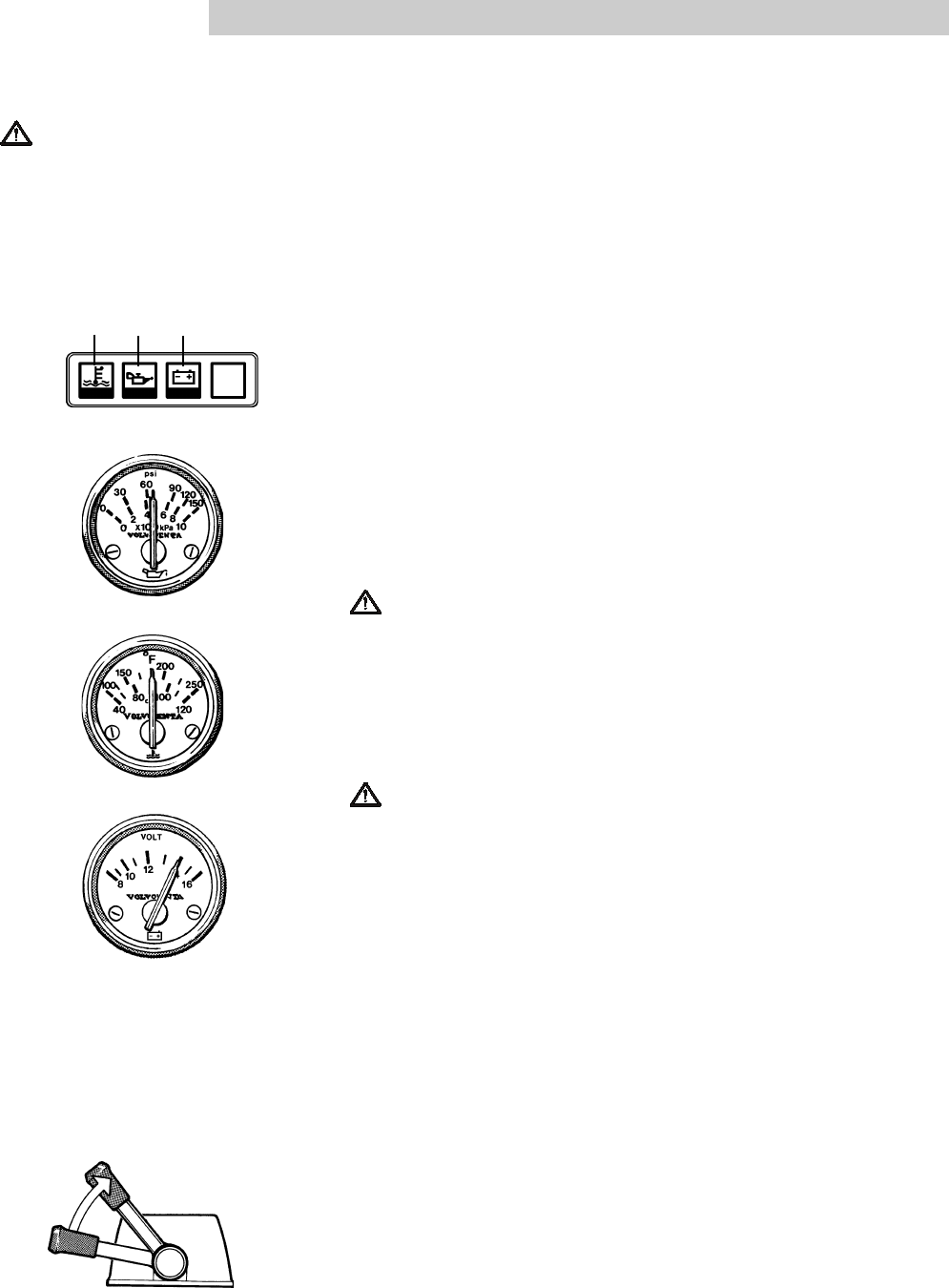
24
Operation
BAC
Avoid violent and unexpected changes in course and gear engagement. There is a risk that someone aboard will
fall over or overboard.
WARNING! A rotating propeller can cause serious injury. Check that nobody is in the water before engaging
ahead or astern. Never drive near bathers or in areas where people could be in the water.
Checking instruments
Check the instruments and warning display directly after starting the
engine and then at regular intervals while driving the boat. Stop the
engine if there is an abnormal reading or any warning lamp comes on
and the alarm sounds. For engines with measuring instruments the
following standard values apply:
Oil pressure (A)
Normal operating oil pressure is between 150–500 kPa (21–71 psi). At
engine idle this is normally lower. The acoustic alarm will automatically
go off if the oil pressure is too low.
IMPORTANT! If the alarm sounds: Stop the engine immediately.
Investigate and correct the malfunction.
Engine coolant temperature (ECT) (B)
Normal operating temperature is between 75–90°C. The acoustic alarm
will automatically go off if the engine coolant temperature (ECT) is too
high.
IMPORTANT! If the alarm sounds: Reduce engine speed to idle
(neutral). Stop the engine if the temperature does not drop.
Investigate and correct the malfunction.
Charging (C)
The operating charge current is approx. 14 V. When the engine is
stopped battery voltage is approx. 12 V.
Cruising speed
Operating the engine at wide open throttle (WOT) should be avoided
since it is both uneconomical and uncomfortable. Volvo Penta recom-
mends a cruising speed in the range 500–1000 rpm lower than maxi-
mum rpm at WOT. Depending on hull type, choice of propeller, load and
conditions etc. the maximum engine speed at top speed can vary, but
it should be within the WOT range.
Wide Open Throttle (WOT) range: ................. 2,700–3,000 rpm
7742957 - Downloaded from www.volvopenta.com 22/09/2008 11:33:23


















